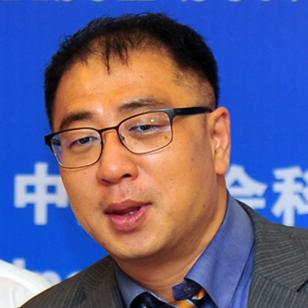Realising the Transformative Vision of the 2030 Agenda for Sustainable Development in All Localities
Translating the 2030 Agenda for Sustainable Development from a global-level vision into national and local solutions will be key to its success. These solutions will need to transform economic, social, and political structures at the local level in an inclusive, democratic, and sustainable way. Deeply embedded in local context, the social and solidarity economy (SSE) concept has great potential for localising the Sustainable Development Goals (SDGs). This brief looks at three key pitfalls that stakeholders need to avoid in the process, and suggests ways to address them through SSE institutions and actors to help localise the SDGs.
Pitfall 1: Adopting national strategies that ignore local specificity
Localising the SDGs requires its own local democratic governance mechanisms that engage multiple stakeholders. SSE organisations, which are guided by principles of democratic self-management, solidarity and cooperation, can be key players in local participatory democracy. Participation in SSE organisations is a way of empowering women, for example, not just in the workplace but also in both the public and domestic spheres. In Ecuador and Bolivia for instance, formal institutional mechanisms ensure the collective right of communities to be engaged in designing projects and laws affecting their lands or environment.
Pitfall 2: Establishing institutions and policies; neglecting empowerment and participation
Local institutions need to be shored up with broad-based social mobilisation of poor and otherwise excluded people to prevent institutions from being subject to the overriding influence of, or outright capture by, powerful local elites. SSE organisations, which are often intertwined with broader social struggles to promote the interests of the most vulnerable, can play a key role in preventing elite capture and empowering disenfranchised or voiceless groups through their bargaining power, by forming alliances and by transforming nominal participatory democracy mechanisms into effective ones.
Pitfall 3: Subsidiarity without solidarity
Local governments are best placed to understand local-level needs. Taking steps to address local needs without considering the broad principle of solidarity or other localities’ needs can be contradictory in the process of attaining the SDGs for all. Many transnational coalitions and international networks of national and local SSE organisations contribute to strengthening coordination mechanisms and solidarity across different localities. By fostering the exchange of local knowledge and mutual learning from experience, they help identify sustainable local solutions.
Six strategic ways to strengthen the institutions and actors of SSE and help localise the SDGs
- SSE organisations and enterprises must not only undertake activities that are economically viable, but also stay true to their core values and principles in order to break down the structures of inequality that underpin unsustainable development in the local context.
- Local democratic mechanisms that allow SSE actors and other stakeholders to contest and negotiate policy solutions reflecting local conditions need to be established or strengthened.
- Interactive governance involving vertical, horizontal, and diagonal networks with multiple actors at different levels needs to be strengthened by including SSE organisations and enterprises.
- Local politics needs to be reconfigured to provide an enabling environment for SSE to scale up in ways that respect its core values.
- While collaboration with government can maximise impact, SSE needs to avoid being instrumentalised by government for narrow political and policy objectives.
- Local control of production and consumption circuits by economically and politically empowered SSE actors needs to be enhanced, to prevent income and assets from flowing out of local areas, and to avoid the unjust distribution of environmental and social costs and income through value chains and market mechanisms.
This article was written by Ilcheong Yi, a Senior Research Coordinator in the Social Policy and Development Programme at the United Nations Research Institute for Social Development (UNRISD). He was one of the speakers during the 6th UN Summer Academy on the topic of localising the 2030 Agenda for sustainable development held in August in Bonn.
This article is based on Localising the SDGs through Social and Solidarity Economy, UNRISD Research and Policy Brief 24, September 2017, http://www.unrisd.org/rpb24e.
